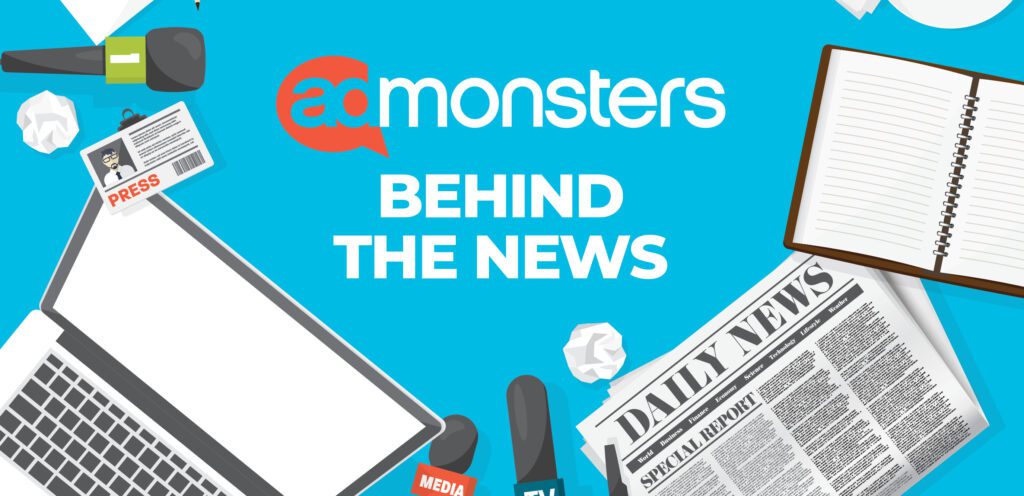
Google’s AI Overviews and rival AI search tools are keeping users on their platforms, decimating referral traffic for publishers. As lawsuits mount, is there a way forward for the open web?
For decades, publishers and Google enjoyed a symbiotic relationship: publishers created content, and Google indexed it. In return, search traffic drove visitors—and revenue—back to publishers’ sites. But generative AI is upending that balance.
Now, the courts are being asked to weigh in. Chegg, an online education company, filed a lawsuit against Google, arguing that AI Overviews have decimated its referral traffic and could ultimately erode the internet as we know it.
Google’s AI Overviews—along with rival tools such as Perplexity, ChatGPT Search, Deep Research, and others—have accelerated a trend known as zero-click search.
In zero-click searches, users find the answers they need directly within search results, eliminating the need to visit publisher sites. In 2024, nearly 60% of Google searches ended in zero clicks, a number that will likely grow as AI search engines become more sophisticated and consumers opt to use them.
This shift threatens the traditional digital publishing model. Search traffic has been the lifeblood of online media for years, providing exposure, ad revenue, and opportunities for audience engagement. As AI-generated answers increasingly replace direct clicks, many publishers are watching their organic traffic decline. Some have described the situation as an existential threat, warning that if AI search engines continue to scrape and synthesize content without compensation, it could dismantle the open web as we know it.
The Legal Battle: Can AI Search Be Stopped?
Fighting AI search outright may be futile. It’s already reshaping how people access information. But publishers are pushing back, seeking fair compensation and exploring ways to create value beyond AI-generated summaries.
So far, legal action has focused on AI companies using publisher content to train models. The New York Times, for example, sued OpenAI and Microsoft, arguing that their AI models unlawfully copied its journalism. While lawsuits have pressured AI firms to address copyright concerns, they have not resulted in broad compensation agreements.
The Chegg lawsuit is different. It directly challenges AI search, , arguing that Google’s AI Overviews unfairly reduce referral traffic.
The Chegg lawsuit is different. It directly challenges AI search, arguing that Google’s AI Overviews unfairly reduce referral traffic, undermining the fundamental relationship between search engines and publishers.
At the heart of this case is a question of competition: Does AI search tip the scales in Google’s favor?
Google’s AI Overviews don’t just answer queries; they keep users within Google’s ecosystem, leveraging publisher content to do so without the benefit of sending traffic back. This consolidates Google’s control over both information discovery and monetization.
Chegg says that this behavior isn’t just harmful—it’s anti-competitive. If AI search engines continue extracting value from publisher content without attribution or compensation, the very foundation of independent digital publishing could be at risk.
This leads to a new worry: AI slop. If publishers can’t sustain themselves, the internet will become flooded with low-quality, AI-generated content.
What Can Publishers Do?
Lawsuits may pressure AI firms to negotiate, but publishers must also adapt to the reality of generative AI permeating deeper into the ecosystem. Some are experimenting with zero-click marketing, a strategy focused on engaging audiences even when clicks decline. Rather than relying on traffic alone, publishers are shifting toward content that AI summaries can’t easily replicate.
One approach is creating more immersive content, offering real-world case studies, industry-specific insights, and exclusive research that provides deeper value than AI-generated answers.
Actionable resources like templates, frameworks, and interactive tools can encourage engagement beyond passive reading. Regular updates and fresh insights keep content relevant and harder to replace with static AI summaries.
Another strategy is to lean into more multimedia and interactive content. Videos, interactive elements, and calculators create a richer experience that AI tools struggle to replicate. Publishers are also experimenting with new content formats that encourage direct user interaction, making engagement less dependent on traditional search-driven traffic.
No doubt some solutions will come from the digital ad tech industry. The recent partnership between HUMAN and TollBit may offer a model for publishers to regulate AI’s access to their content: allow AI systems to use it, but only if they pay.
HUMAN’s detection engine identifies AI bots that access content, while TollBit enforces a paywall that requires the AI developer to compensate the publisher for that access. This automated framework allows AI companies to use high-quality content, but on publishers’ terms.
Could the same model extend to search? Rather than block AI entirely, could publishers establish a licensing model that ensures fair compensation for AI-generated search results?
While legal battles unfold, finding ways to remain indispensable is the real challenge. The question is no longer whether AI search will change publishing—it already has. What matters now is ensuring publishers still have a seat in shaping the future.